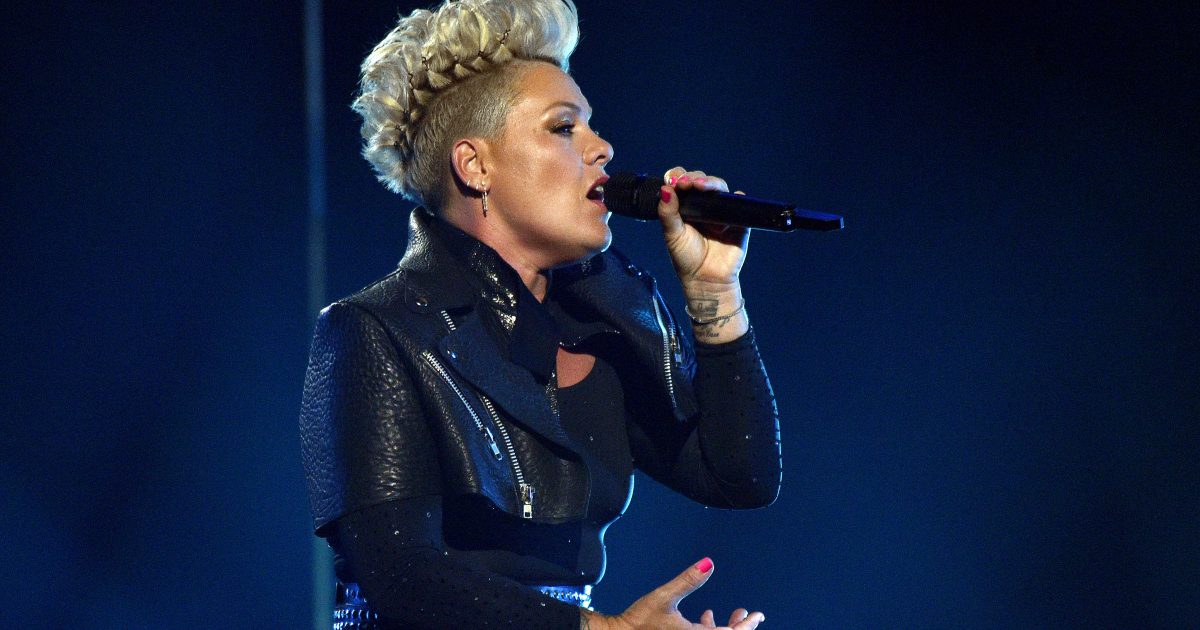Pink is Healing After Surgery; Praises Caretaker Husband
- Grammy-winning singer Pink is recovering after hip surgery and recently shared an update with fans. She says her health battle has had a positive impact; it helped her to appreciate her blessings and to recalibrate.
- Focusing on the good and the positives through a health battle can make it feel easier; it’s important to monitor your mental health when facing challenging situations like a difficult diagnosis.
- Pink praised her husband and partner Carey Hart, who did things like take her temperature, monitor her medications, and cook for her, during her recovery period. Having a caretaker paid or volunteer can make a recovery period far easier than going it alone.
The three-time Grammy winner who’s beloved for her showstopping voice and authenticity shared a cute selfie on Instagram this week, along with reflections on how health battles can be seen as empowering. She writes that she views this time as an opportunity to be grateful and recalibrate.
Read MoreView this post on Instagram
Pink recounts the difficulties following surgery, saying, “It was a brutal first week full of tears and pain med depression, ulcers from meds and constant fevers, but my @hartluck brought me through. (No one recovers from surgery like he does, he's not real.) he brought me coffee in the shower, lugged around my 100 pound CPM contraptions every where I went, dried my tears, cooked me oatmeal, kept track of my meds, got me my phone charger, plugged in my compression machines, took my temp, made the bed, and talked me off the ledge…”
The Pennsylvania native says wisely, “Life always reminds you that most setbacks are actually just pauses and opportunities to recalibrate and count your blessings….My journey will be quick and intentional, And I will make a full recovery. For that I am so blessed. I'm impressed by those that face real, hard challenges, and alchemize their situation into something magical, or meaningful. In the meantime, shout out to all of those on the journey to wellness, and to those making magic out of the impossible. Have a great day folks!!!!! Let the healing begin.”
How Good Mental Health Positively Impacts Cancer Treatments
As Pink attests in her post, going through a health battle can be emotionally and mentally draining, and may leave you feeling like you need to be “talked off a ledge,” as she says.
Having a health challenge or a diagnosis like cancer leaves many grappling with feelings of grief, anxiety, overwhelm, and even, in some cases, clinical depression.
Only about 15% of people diagnosed with cancer experience clinical depression. However, if you’re someone who is experiencing this, it’s important to get help. In an earlier interview, Dr. Scott Irwin, the Director of Supportive Care Services at Cedars-Sinai, explains why it’s critical to consider your mental health through a cancer battle.
He says, “For prescribing medications for depression in the context of cancer, I often try to choose medications with the lowest side effect profile. If patients are getting hormonal therapy, there’s particular antidepressants that we can’t use, because they may lower the effectiveness of that hormonal therapy.”
“And so we choose antidepressants that don’t impact the cancer care,” says Dr. Iriwn. “Depression and stress make it harder to treat cancer, make it harder to tolerate the treatments.”
Treating Depression After a Cancer Diagnosis
The Value of a Supportive Caretaker
We love how Pink praises her husband and longtime partner, Carey Hart, who cared for her after surgery in countless ways. A loving and supportive caretaker, like a spouse or friend or family member, can help to alleviate pain and anxiety when going through a health battle.

Pink says Hart monitored her medication, plugged in her compression machines, took her temperature, cooked for her, and provided emotional support when she was feeling low.
Having a caretaker around to help you after surgery, or through a health battle of any kind, is a good idea. It may make the health challenge feel less overwhelming if you have someone there at your side to assist with day-to-day tasks and mental support. Reach out and ask for help when you need it; your loved ones want to help you. You can also hire a paid caretaker if that feels more comfortable to you.
Husband Shares Emotional Rollercoaster On TikTok as He Helps Wife Fight Cancer
Learn more about SurvivorNet's rigorous medical review process.


